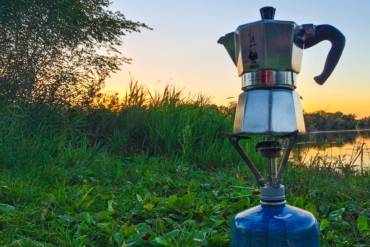October was Non-GMO Month. Didn’t hear about that? Neither did a lot of people.

But Jules Lambert did. As head of the sports nutrition company PROBAR, Lambert is in the unique position of leading the brand away from GMO ingredients and to Non-GMO Project certification.
We caught up with him to find out why consumers should be concerned about Genetically Modified Organisms sneaking into the diet and GMO genetics into the ecosystem.

GearJunkie: Why do you choose to go with non-GMO ingredients? What is the difference?
Jules Lambert: GMO refers to the direct laboratory altering of an organism’s genome; this may involve mutating, deleting, or adding genetic material. Since the early 90s our national food supply has gone from 0 to 90-plus percent GMO. Take for example BT Corn, a GMO variety that now dominates 75% of all the corn planted in North America. BT Corn is the laboratory result of crossing Bacillus thuringiensis, a soil dwelling bacteria that kills caterpillars, and common corn. Consequently, BT Corn secretes its own pesticide to keep off hungry bugs and is actually registered with the USDA as a pesticide. Is that something you would want in your body to fuel a race?
It’s important for our customers to trust our ingredients and to understand our seriousness about quality. So in keeping with that, we sought and achieved Non-GMO Project Verification.
Why should people care about GMOs?
For those of us who care about the environment, it’s important to recognize that global health comes from genetic diversity based upon survival of the fittest. However, by artificially creating strains of plants that can’t be killed by insects or pesticides, we are essentially introducing hyper-invasive species into the wild. These plants inevitably cross-pollinate with local plants and weeds, creating weeds resistant to pesticides and bugs, and plants that emit their own pesticides and have unintended targets like monarch butterflies.
Outdoor enthusiasts in particular have always demanded a higher degree of accountability from their favorite brands and companies. They want us to take leadership positions in sustainability, fair trade, and to help preserve the wild landscapes we all use. Nothing is more central to these tenets than supporting non-GMO agriculture.
What is the difference between what you make and what everyone else makes?
PROBAR strives to make whole-food available for anyone who doesn’t have a fresh organic garden on hand or the time to cook — that’s a lot of us. Our bars are blended not baked, meaning the ingredients are kept mostly raw with a high degree of nutritional integrity. Moreover, all of our products meet the rigorous Non-GMO Project Verified standard.

What ingredients in your foods do specific things, ie. carb, proteins and fats and other nutrients?
One of PROBAR’s core values states: “Big Steps, Small Footprint — PROBAR is a sustainable, real food choice. Our ingredients are plant-based, coming from sustainable sources, which have a small impact on the Earth and a significant and positive impact on our bodies.” You could view this as a constraint or hindrance. We utilize this compass as a guide to always seek the best quality plant-based ingredients available.
We’re also very deliberate about the mix of ingredients in our bars. Our MEAL bars, for example, aren’t just a willy-nilly mix of yummy stuff. Rather, they are balanced to deliver an ideal ratio of carbs, healthy plant-based fats, and protein.
Can you tell a difference between the two in terms of performance?
GMO crops have been in our food system for less than 20 years and independent long-term testing on humans and GMO diets is generally impossible to conduct, not to mention unethical. Hence, much of the data is anecdotal at best. However, without a doubt, the sheer amount of pesticides dumped on our food is incredible. Food that creates its own pesticides or encourages farmers to apply more-than-generous amounts because the crop is resistant to them adds a poisonous element that I’m concerned we’ll only begin to understand toward the end of our generation’s life span.
Sport climbing or mountaineering?
Sport climbing!
Trail Running or Road Running?
Trail running to clear the mind and reconnect; road running to meet the weekly mileage target.
Beer or Wine?
As a descendent of Germans from the Bitburg area, it’s hard to imagine how I got hooked on green smoothies and coconut water. If things get really wild in the morning and I’m living on the edge, I might add maca, chia, and an extra scoop of wheatgrass to the mix.
What is the most important thing consumers should know about GMOs?
While there are major health concerns for consumers and the environment, no one has all the facts. However, most developed nations don’t consider GMOs to be safe and have either banned or placed heavy restrictions on the use or import of products containing GMOs. Consumers in the U.S. have a right to know what they’re buying and eating.
—Sean McCoy is a contributing editor. Jules Lambert is the president of PROBAR.






